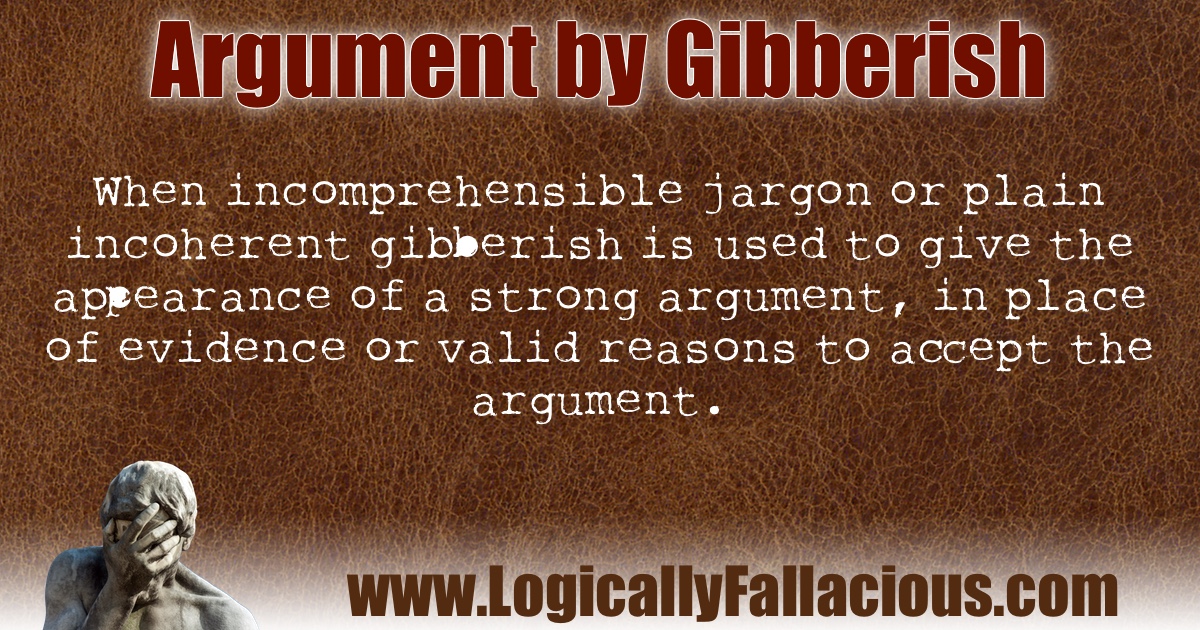(also known as: bafflement, argument by [prestigious] jargon)
Description: When incomprehensible jargon or plain incoherent gibberish is used to give the appearance of a strong argument, in place of evidence or valid reasons to accept the argument.
The more common form of this argument is when the person making the argument defaults to highly technical jargon or details not directly related to the argument, then restates the conclusion.
Logical Form:
Person 1 claims that X is true.
Person 1 backs up this claim by gibberish.
Therefore, X is true.
Example #1:
Fortifying the dextrose coherence leads to applicable inherent of explicable tolerance; therefore, we should not accept this proposal.
Explanation: I have no idea what I just wrote, and the audience will have no idea either -- but the audience (depending on who the audience is) will most likely make the assumption that I do know what I am talking about, believe that they are incapable of understanding the argument and therefore, agree with my conclusion since they think I do understand it. This is fallacious reasoning.
Example #2: (The following was taken from the movie Spies Like Us where Emmett Fitz-Hume, played by Chevy Chase, was addressing the press.)
Well, of course, their requests for subsidies was not Paraguayan in and of it is as it were the United States government would never have if the president, our president, had not and as far as I know that's the way it will always be. Is that clear?
Explanation: Emmett Fitz-Hume was clearly avoiding having to answer the question, and substituted gibberish for an answer. While the press was metaphorically scratching their heads to figure what what was just said, Emmett moved on without answering the question.
Exception: Some arguments require some jargon or technical explanations.
Tip: Remember that good communication is not about confusing people; it’s about mutual understanding. Don’t try to impress people with fancy words and jargon, when simpler words will do just fine.

References:
This a logical fallacy frequently used on the Internet. No academic sources could be found.